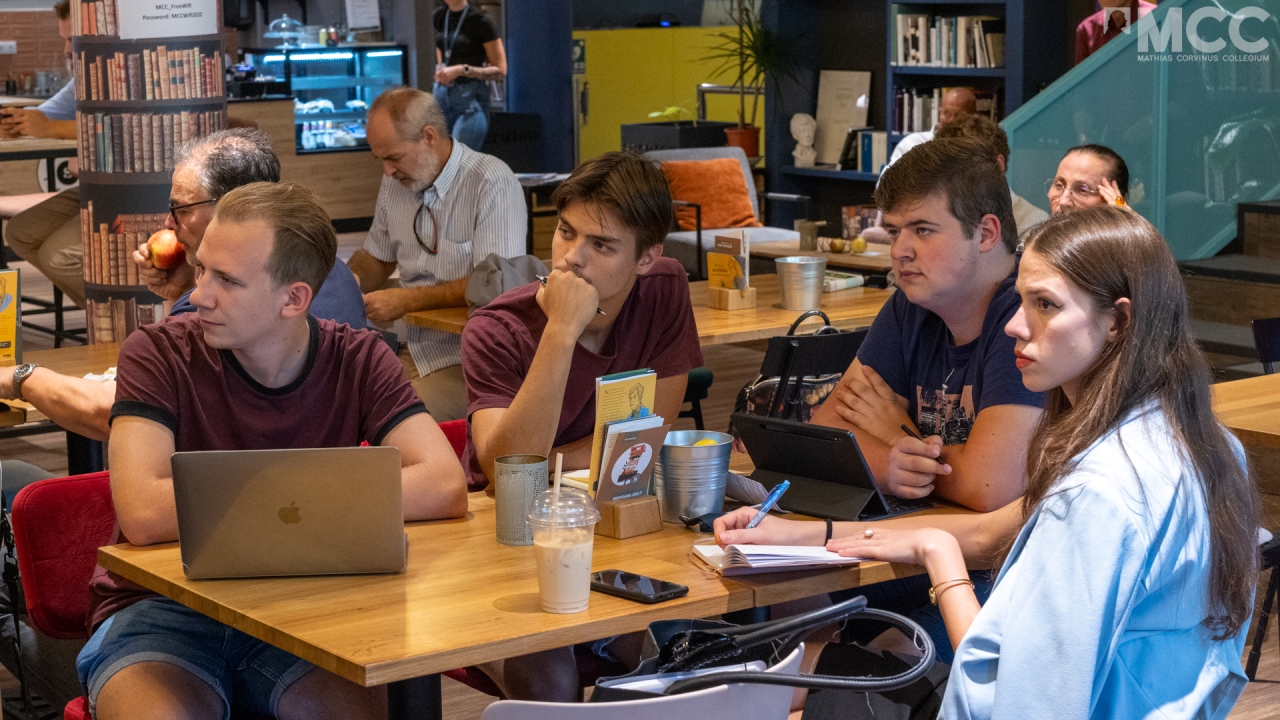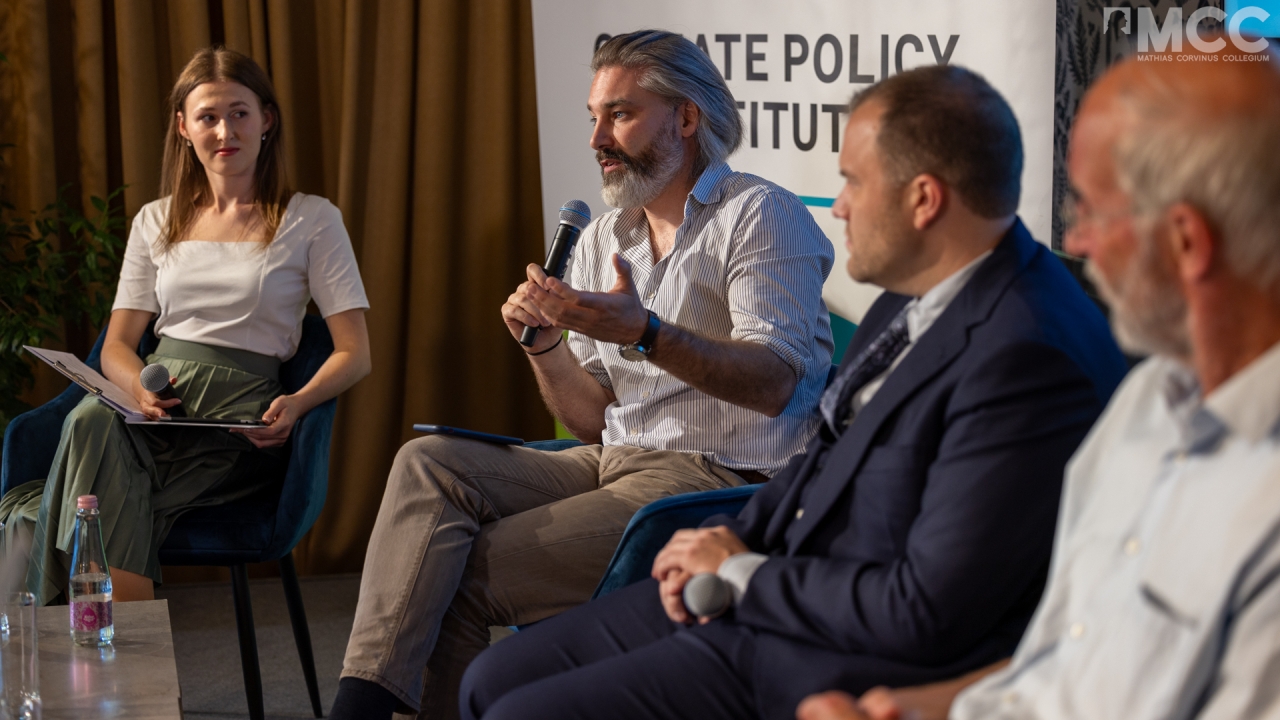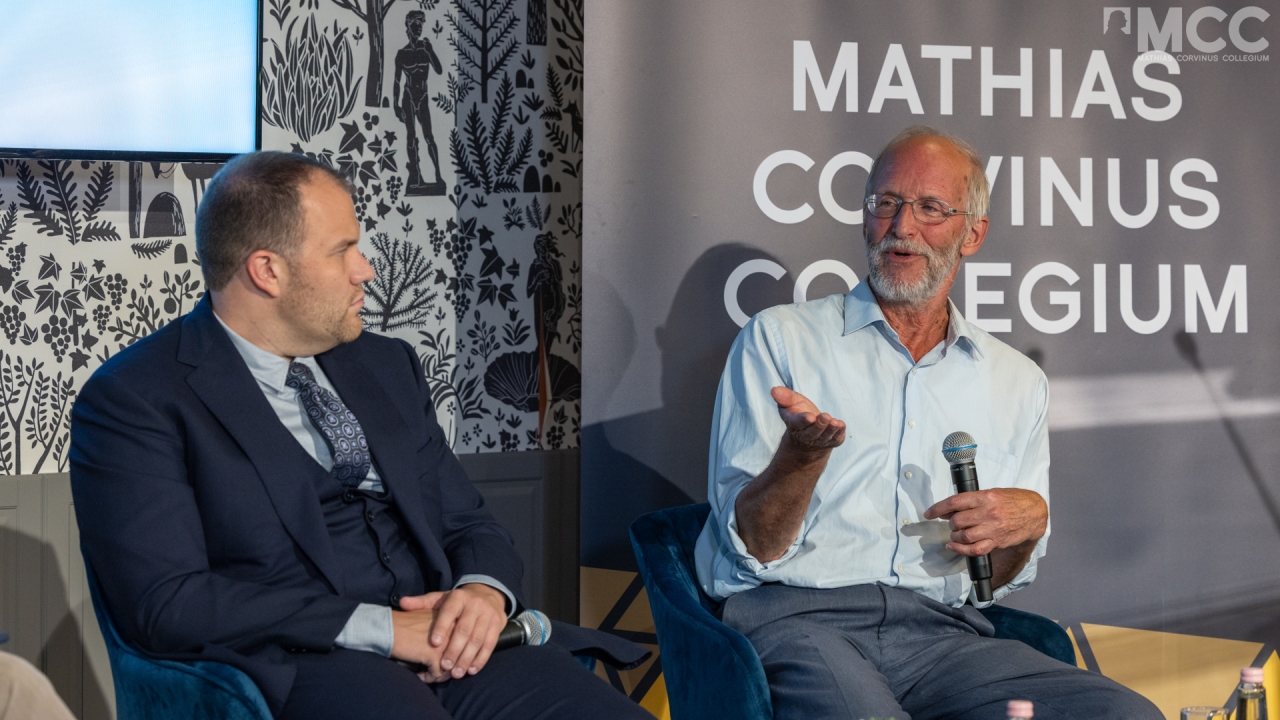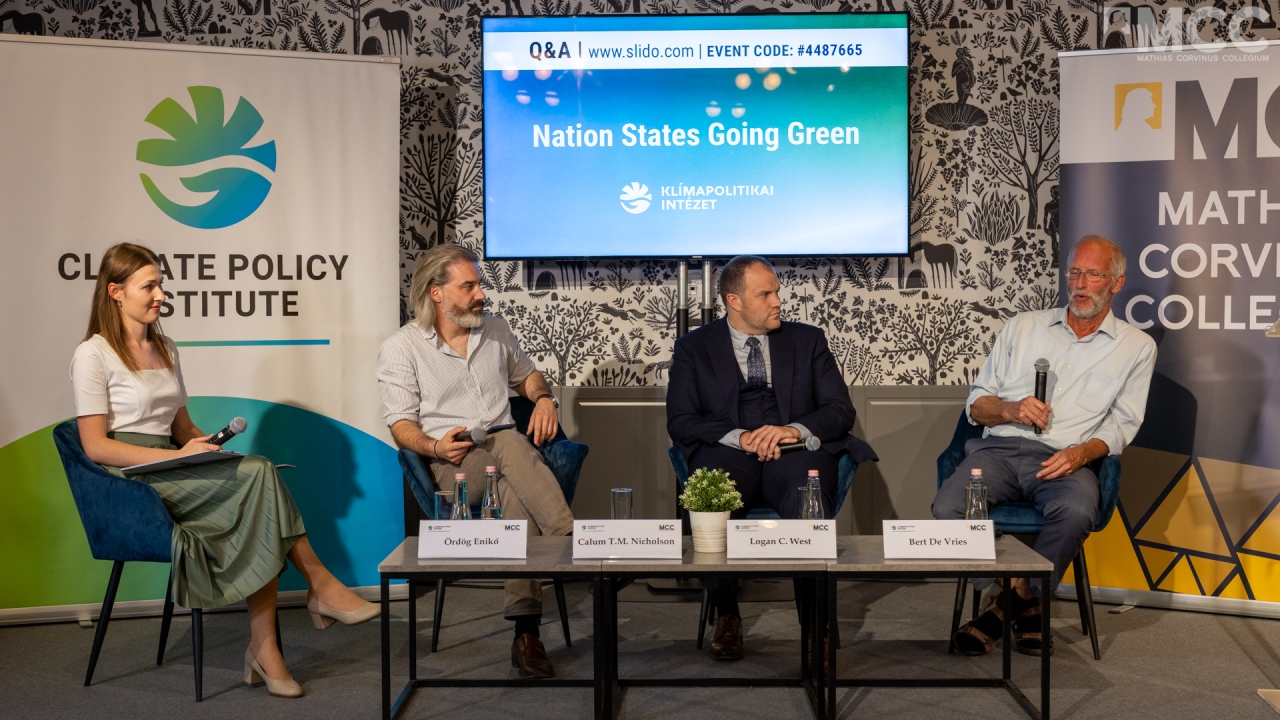Reading time: 3 minutes
Professor Bert De Vries has given a presentation about the key themes of sustainable development for nation states. The way in which the conversation about sustainability is changing differs from the previous decades widely.
The global interconnectivity makes the already extremely gaping themes of sustainability like environment, energy transition, technology, and policy even more complex. Reaching the desired points of low greenhouse gas emission as well as continuing the current GDP growth dominated global economic system is not only difficult, but according to Professor Vries near impossible. The ethics of sustainability ought not to be belittled but magnified in the case of water, food and other planetary resources.
Afterwards an insightful discussion was followed more in depth about the methods that sustainable development can be viewed at. The panel discussion included next to Professor Vries, Calum T.M. Nicholson- (Climate Policy Institute), Logan West (Danube Institute) and Enikő Ördög (Climate Policy Institute). The mainstream media takes the discussion about climate change into a frenzy, where climate catastrophe is being advocated, instead of offering a moderate, realistic view on the issue of climate change and sustainability at hand. The panellists have mentioned adaptation as an optimal way of dealing with climate change, because it is something that nation states have already been doing throughout their cultures as to adopt to different weather circumstances. The role of the policymakers would be to have long term vision at hand, instead of them just looking at their own jobs and instant results in a human’s lifetime. This is something that all the panellists have agreed upon.
Transportation systems in the western world differs from the European and the Northern-American Continent, thus these developed nation states also have distinct challenges with it. Across the wide distances of the U.S. as Mr. Logan West has pointed out, the logical way to travel is by car, and an electric car can not be an option for the lower income families. The same notion was reiterated by the panellists in the countries like United Kingdom, Netherlands and across the EU. This was a prime takeaway from the event as the 2035 petrol and diesel car ban is still intact in the European Union - beside some promotion of bikes and public transportation -electric cars are portrayed by policymakers as the way to go.
The nation states were created post-Westphalia in the 17th century, which creates a topical fence for sustainability. Besides that, the role of an individual, citizen was reviewed. One can participate in the “greening” of nation-states meanwhile making the world also more sustainable. Thus, nation states ought to have sovereignty to make these impactful decisions. Getting back to our traditions in our local cultures and ecology what it means to live with nature is fundamental. Also, the mindset of being less focused on the trendiest, greenest advertised product and more on the existing possibilities which might be less frivolous (like bringing your own coffee in a thermos instead of getting it in a paper cup) makes you more sustainable. It’s all about informing the public honestly about climate change and sustainability without judgement. Empowering people with critical thinking about climate change and sustainable development is a message that the audience can bring home.




